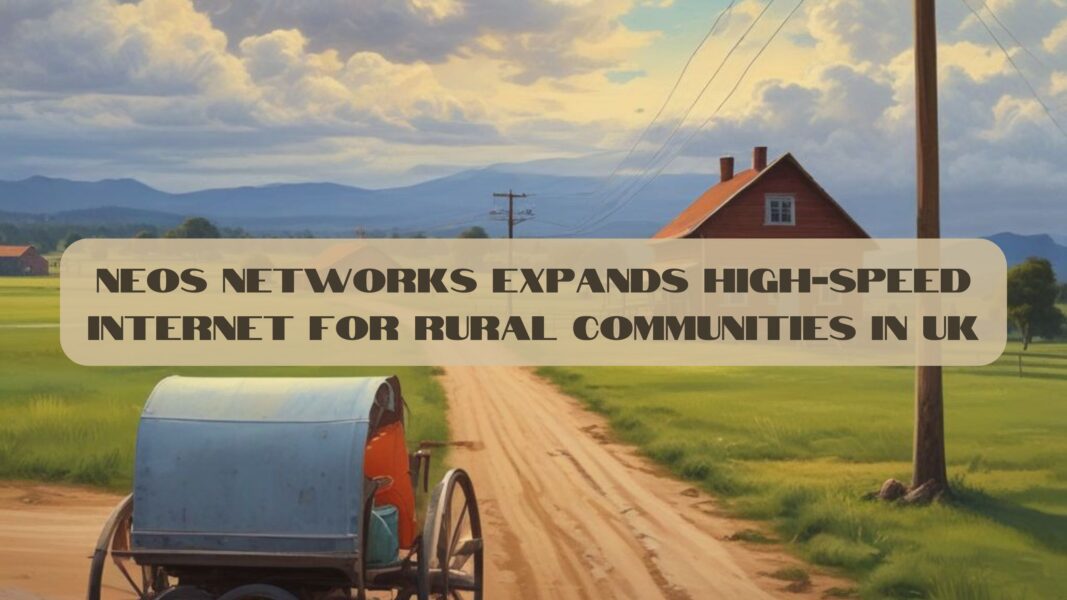Access to high-speed internet is no longer a luxury but a necessity in today’s digital world. However, many rural communities across the UK still struggle with slow and unreliable broadband connections, limiting opportunities for education, healthcare, and business growth. In a major step toward closing this digital divide, Nottinghamshire County Council has appointed Neos Networks to deliver gigabit broadband under the D2N2 Gigahubs project.

The initiative, covering Nottinghamshire and Derbyshire, is a significant milestone in bringing reliable, high-speed internet to underserved areas, including schools, libraries, and healthcare facilities. Neos Networks is collaborating with leading infrastructure providers Openreach and Netomnia to deploy this broadband network.
A Step Closer to Digital Inclusion
The digital divide has long been a challenge in rural areas, where poor connectivity limits access to education, telemedicine, and business opportunities. The D2N2 Gigahubs project aims to change that by upgrading broadband infrastructure to gigabit speeds (1 Gbps or higher).
Currently, survey work is underway to identify up to 28 public buildings across Nottinghamshire and Derbyshire that will benefit from the project. The first confirmed locations include:
- Langar C of E Primary School, near Bingham
- Queen Eleanor Primary School, Harby, near Newark
- 22 additional sites across Derbyshire and Derby
These institutions will soon experience seamless, high-speed connectivity, enabling entire classrooms to access online learning without interruptions, expanding virtual field trip opportunities, and facilitating telehealth consultations for rural patients.
Also Read: Countries With the Fastest Mobile Internet Speeds
Government Funding and Devolution Support
The project is funded by the Ministry of Housing, Communities & Local Government, formerly known as the Department for Levelling Up, Housing and Communities. The funding was part of the East Midlands Combined County Authority’s devolution negotiations in 2023, which aimed to boost digital infrastructure.
The criteria for eligibility include:
- Current broadband quality – Prioritizing areas with slow speeds.
- Location – Rural and underserved regions get priority.
- Planned upgrades – Sites not covered by commercial broadband expansion.
Statements from Key Stakeholders
Keith Girling, Cabinet Member for Economic Development and Asset Management, Nottinghamshire County Council
“We are proud to lead this initiative. This project is crucial for residents and businesses that struggle with poor internet access. Reliable broadband in schools means uninterrupted lessons, and telemedicine will help reduce wait times for medical advice. It’s a game-changer for our communities.”
David Bruce, Chief Revenue Officer, Neos Networks
“Neos Networks is excited to support this broadband expansion. We leverage our extensive network and key partnerships to deliver cost-effective, high-speed connectivity. Much of the UK still lacks sufficient broadband, and this initiative will improve digital and social inclusion for rural areas.”
Carolyn Renwick, Cabinet Member for Infrastructure and Environment, Derbyshire County Council
“Broadband services are evolving, and rural areas must not be left behind. Government funding through the devolution process was essential in making this project a reality. Access to high-speed internet supports education, employment, and public services.”
Also Read: Blockchain Innovation Will Empower AI-Powered Internet Users in 2025
The Role of Neos Networks, Openreach, and Netomnia
Neos Networks, a leading UK fiber infrastructure provider, will deploy and manage the high-speed broadband network. Openreach and Netomnia will assist in infrastructure expansion, ensuring a cost-effective and scalable solution for councils.
What does this mean for residents?
- Faster, more reliable internet in schools, libraries, and healthcare facilities
- Improved remote learning, telemedicine, and digital services
- Support for local businesses and remote work
- Future-proof broadband infrastructure to meet growing data demands
Projected Completion and Future Plans
The full rollout is expected to be completed by Spring 2026. Once implemented, the project may expand to cover additional public institutions and rural homes under further funding and partnerships.
This broadband expansion reflects a larger national strategy to connect rural and semi-rural areas with the digital economy, ensuring that all communities benefit from technological advancements.
Also Read: Protecting Your Child’s Internet Use: Expert Tips for Safety Online
FAQs
1. What is the D2N2 Gigahubs project?
The D2N2 Gigahubs project is an initiative to deliver high-speed internet to schools, libraries, and healthcare centers in Nottinghamshire and Derbyshire.
2. Who is funding the broadband expansion?
The UK Ministry of Housing, Communities & Local Government is funding the project as part of devolution agreements.
3. When will the project be completed?
The broadband rollout is expected to be live by Spring 2026.
4. How will this impact schools and students?
Schools will benefit from faster internet, uninterrupted online classes, and virtual learning tools, improving education quality.
5. Will this help healthcare services?
Yes, telemedicine services will be enhanced, allowing rural patients to consult doctors via high-quality video calls.
6. What areas will get upgraded first?
The first confirmed locations include Langar C of E Primary School and Queen Eleanor Primary School, with more sites in Nottinghamshire and Derbyshire.
7. How does Neos Networks contribute to this project?
Neos Networks is responsible for building and managing the high-speed broadband infrastructure in partnership with Openreach and Netomnia.
8. Will homes in rural areas benefit?
Initially, the project focuses on public buildings, but future expansions could extend to homes.
9. What are the benefits for businesses?
Rural businesses will get access to better connectivity, digital tools, and remote working opportunities.
10. Is this part of a national broadband strategy?
Yes, it aligns with the UK’s broader plan to expand high-speed internet access nationwide, ensuring digital inclusion for all regions.

